Giselle Vigil
Fall 2022
Lucia is a first generation college student.
She is a big sister to two siblings.
She is a Queer Woman of Color.
She is an advocate for mental health.
She has a passion for helping other immigrants.
She is a believer of speaking your mind.
This is Lucia’s story.
Your grandparents live in Mexico and your parents in the States. You spend most summers with your grandparents in Mexico, and one day, you unknowingly cross the U.S.-Mexico border for the last time. This was the reality for Lucia.
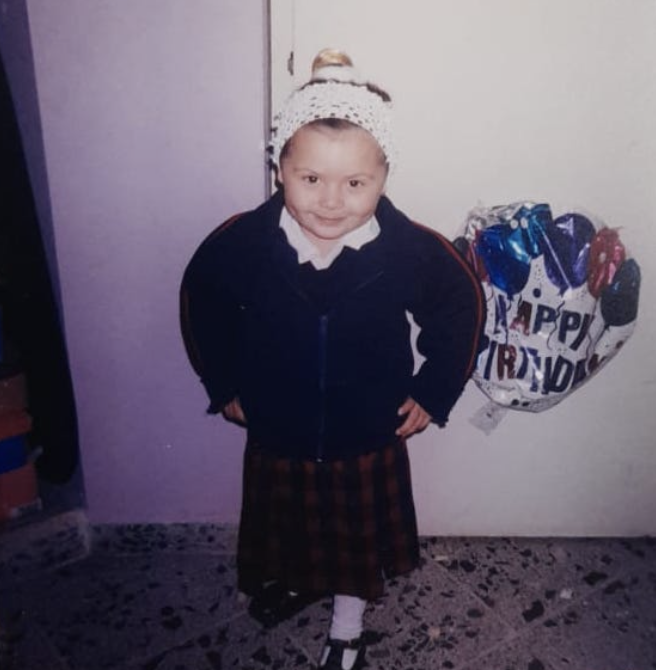
Lucia was born in Saltillo, Coahuila in Mexico. Her parents made the decision to move to the U.S. when she was two years old.
Prior to her parents’ decision, Lucia would cross to the U.S. with her grandparents using their tourist visas.
When asked about her first memory of moving to the states, Lucia says she “could not even tell you what was going through my head, because I feel that because I had already been crossing into the U.S. every once in a while.
To me, it was just another trip we were taking. I don’t think I understood what was happening.”
Since Lucia and her grandparents had tourist visas, she would spend almost every summer in Mexico with them. Lucia remembers the process of crossing between borders and all the preparation that they went through in case the border officers questioned their visit.
“Every time we crossed back into the U.S., before we would reach the border. My grandparents and us had to go through this whole story of what we’re going to say if they ask questions. When they ask you: ‘where are your parents?’, you say ‘they’re back in Mexico.’ And if they ask ‘Well, why are they not here?’, you say ‘oh, they’re busy working.’
And like they would basically prepare us for the questions that the people asked us most of the time. All the time, we would tell them we were just going there for vacation. That our grandparents are taking us for vacation. ‘Never say that your parents are in the U.S.’, because the moment you say that, they would know they’re most likely undocumented. Especially because of me. So yeah, there was a lot of prep that would happen.”
“I was never really taught any of my culture. It was something that I just had to gather. I never truly felt I was Mexican or Salvadorian. And I have never even considered being American. That’s something that I’m like ‘I’m not from here. I just live here.’ Unfortunately, but thankfully.”
But crossing into Mexico was a different experience.
“I remember the change, in the air, and even the lighting. I would say sometimes here in the U.S it feels very white and kind of gray lighting. But in Mexico, it was very orangey. You know, it feels just a little warm. I could smell it, it smells different. And we have never seen towns like that in the U.S. The dirt roads and everything else. And that’s how I would know. “Oh we’re home.”
Lucia recalls some of her dearest memories of spending time with her grandparents in Mexico.
“I do remember the pre-k school that I went to. I remember it was some lady’s house that they had turned into a school. And it was like monjas (nuns). I remember the book, the book that my grandma used to teach me how to read with. My mom sent me a couple of photos from when it was Independence Day in Mexico and we had to dress up and stuff. And I always remember this little fake car made out of just metal tools that I would sit in and eat my lunches.”
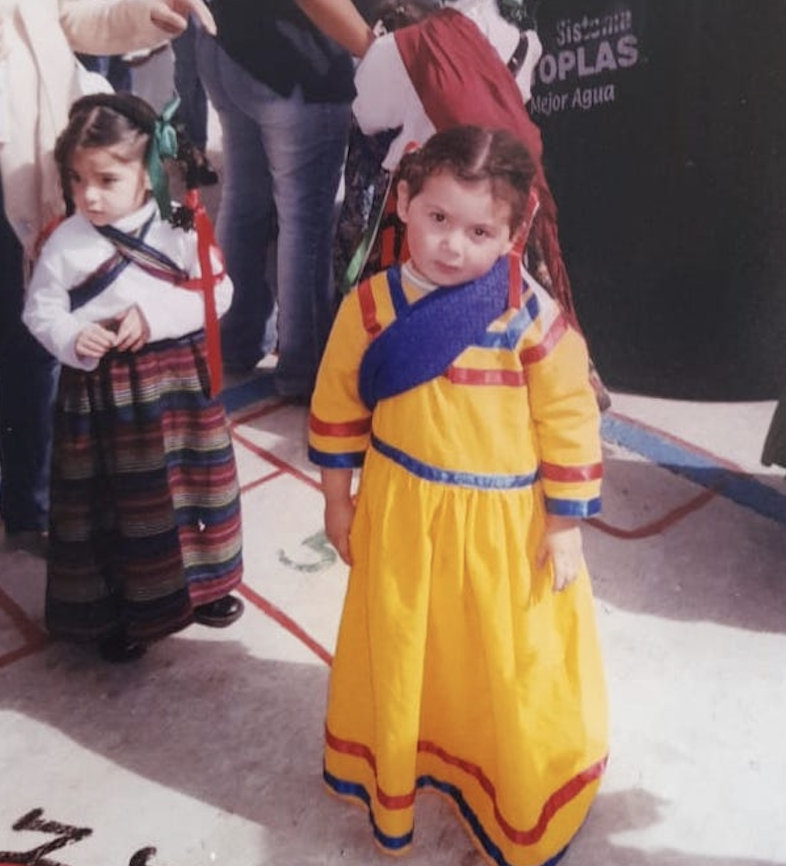
Lucia remembers her parents working long hours and several jobs to provide for her sisters and herself.
At one point, she and her sisters spent almost two years in Mexico with her grandparents, because her parents were trying to run their own little business.
She remembers that initial reaction of reuniting with her mom after being in Mexico for nearly two years.
“And now it had been two years. They had moved somewhere else. It was way nicer, and I was like, ‘where are we?’ I remember asking ‘Mom where are you; how do we get there?’
And so, we parked. And we got out and hugged her in the parking lot with my sisters. Then she led us into the apartment. And we went in. It was such a nice apartment, I was like ‘Wow!’
This was a 2-bedroom apartment and they had furniture. In the first apartment, we didn’t have any furniture. I remember we may have had a TV, and a couch. And mattresses on the floor.
I remember my mom taking us into our room, into the kid’s room. And she had decorated the room. She had bought bunk beds and the sheets were pink and there was like a Bratz cover on them. We really liked Bratz.
There was also this flower lamp that was on the wall and other pink stuff. You could tell she had really taken her time decorating. There were also clothes in the drawers ready for us. And I was like, ‘what is this? Where are we? What is happening right now?’
My mom was also crying because we had grown up so much. It had only been 2 years. But I feel like when you’re little your body changes really fast.”
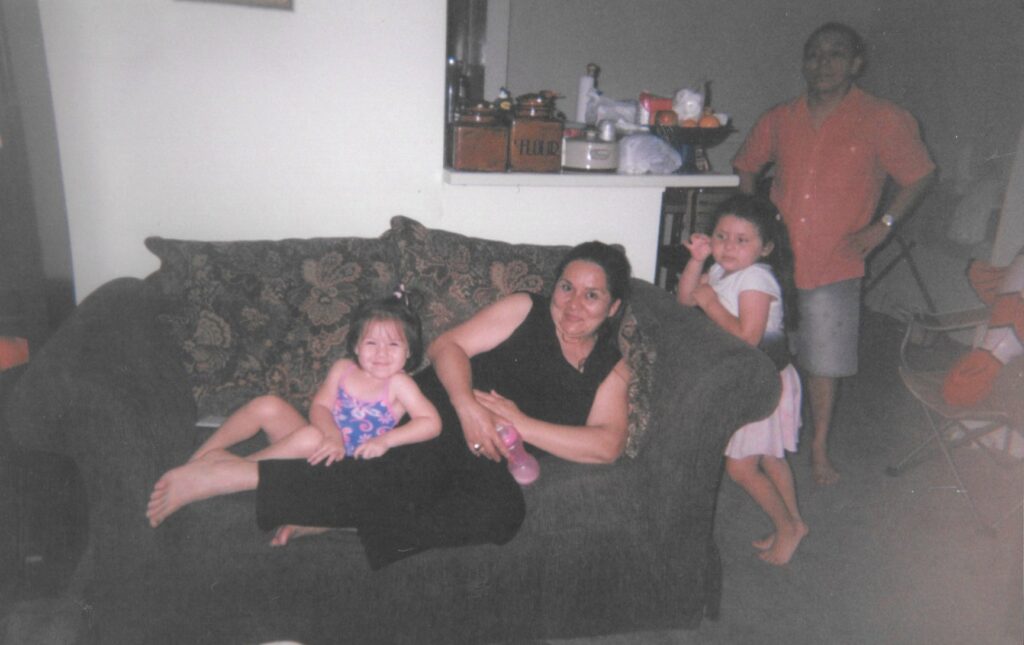
Lucia explained she has little to no memories of her last time being in Mexico.
“It was probably before sixth grade that was the last time I went to Mexico. I don’t remember much. I don’t think I knew that was my last time. I left but it was not like the goodbye. I don’t remember what it was like and I don’t know what I did.”
When asked about how moving to the U.S. has affected how she identifies, Lucia expressed being in a state of limbo.
“I don’t think I ever had a strong connection with being Mexican or Salvadorian. I never really had that. I never had people that implemented that into me.”
Lucia’s mom and her family escaped the civil wars of El Salvador in 1986 and moved to Mexico with fake papers. So their Salvadorian culture remained pretty hidden.
“The family I grew up with are Salvadorans, and they didn’t speak about them being Salvadoran. And they’re not Mexican, so they’re not going to speak up like “’somos Mexicanos.’ So I never really had that. Especially when we came into the U.S., my parents were working all the time. My mom didn’t know anything about her Salavadorian culture. And we didn’t have any family here.
So, I was never really taught any of my culture. It was something that I just had to gather. I never truly felt I was Mexican or Salvadorian. And I have never even considered being American. That’s something that I’m like, ‘I’m not from here. I just live here.’ Unfortunately, but thankfully. Even to this day, I don’t know what I am. I feel there’s too many different identities.”
For Lucia, there are a lot of things that go unnoticed when talking about someone’s migration story.
“All the emotional damage that happens. Leaving your country and not being able to see your family. Immigration is not just about leaving your country to come live here. There’s so many things that go into it that a lot of people don’t think about.”
“All the emotional damage that happens. Leaving your country and not being able to see your family. Immigration is not just about leaving your country to come live here. There’s so many things that go into it that a lot of people don’t think about.
Imagine your family member dying and you not being able to be there to say goodbye. What that does to a person, right? Being treated badly at work. Being told you’re illegal. That you’re not important. Only because you’re in the country, doesn’t mean you’re here ‘legally’ and so you’re not worth being paid enough.
The importance of those messages that are given to immigrants and what does that do to them? And the way they view themselves. How they value themselves. They lose themselves a lot of the time. They’re put into jobs they don’t really like. It doesn’t allow them to fulfill their needs. They don’t have any passions. They don’t have goals. Coming here gets rid of that.
Immigrants are treated as if they are just that. That’s all the identity they get. They’re immigrants and that’s it. They don’t talk about the other things that they are.”
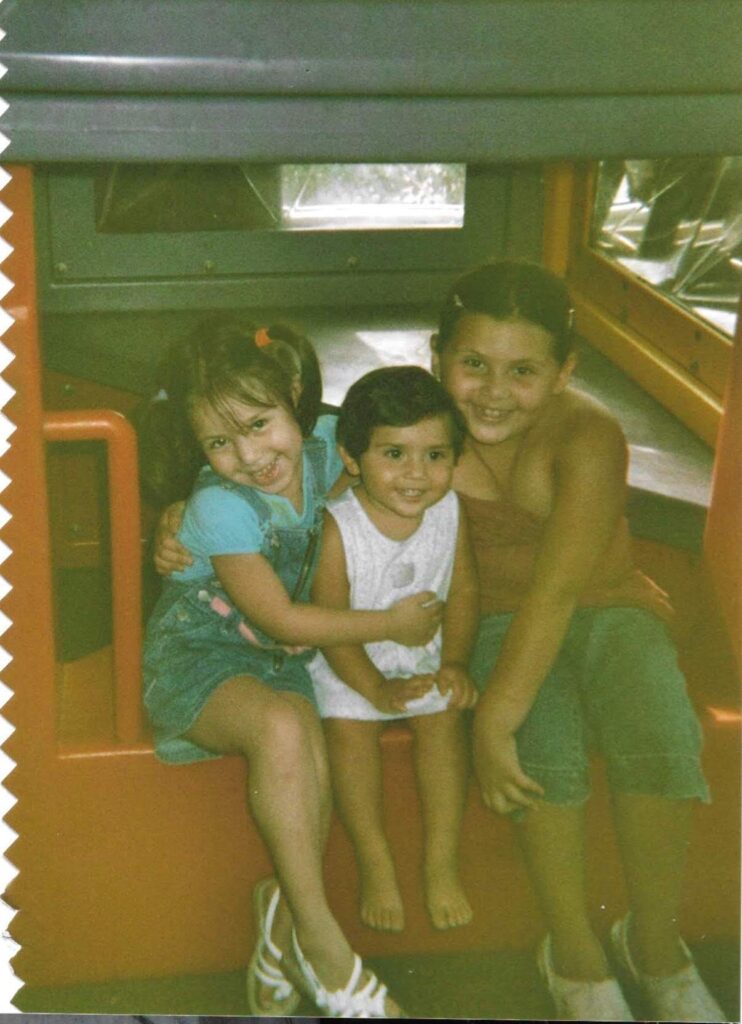
Lucia is a first generation college student.
She is a big sister to two siblings.
She is a queer woman of color.
She is a someone with the passion of helping the immigrant community.
She is an advocate of mental health.
She is a believer of speaking your mind and to be more critical of things.
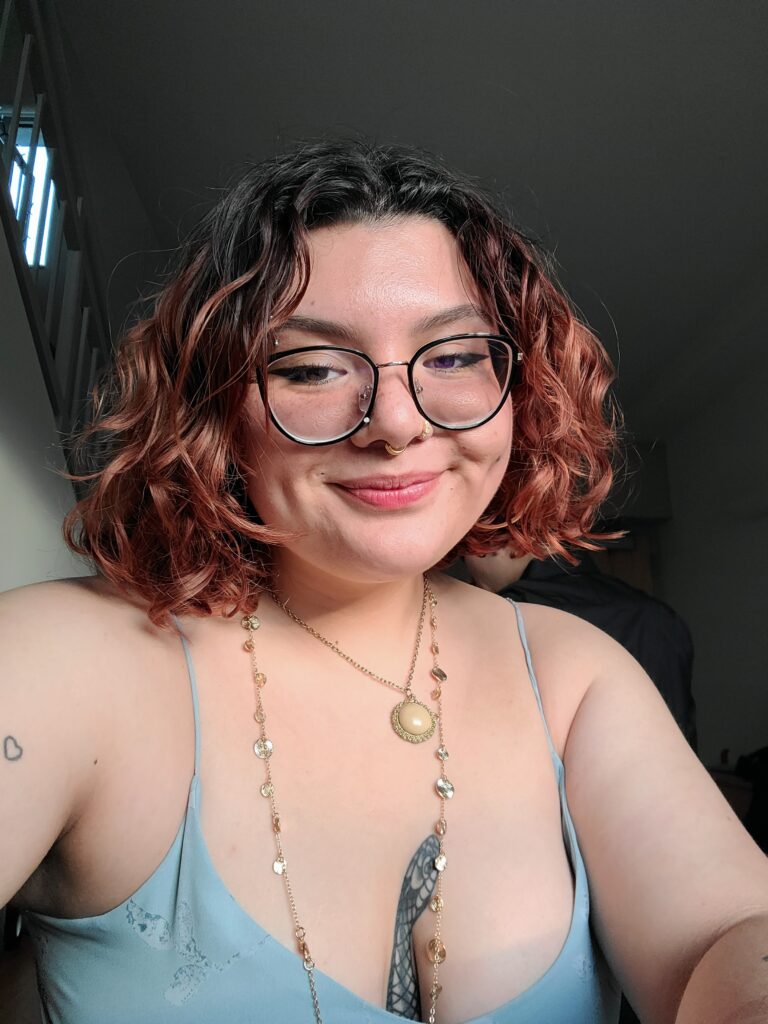
Lucia hopes to do a lot of social work within immigrant and other marginalized communities.
Lucia’s own experiences have inspired her to reach young immigrants and help them integrate into society.
She wishes to work with single mothers and women of color who have been victims of domestic abuse, as well as helping former prisoners.
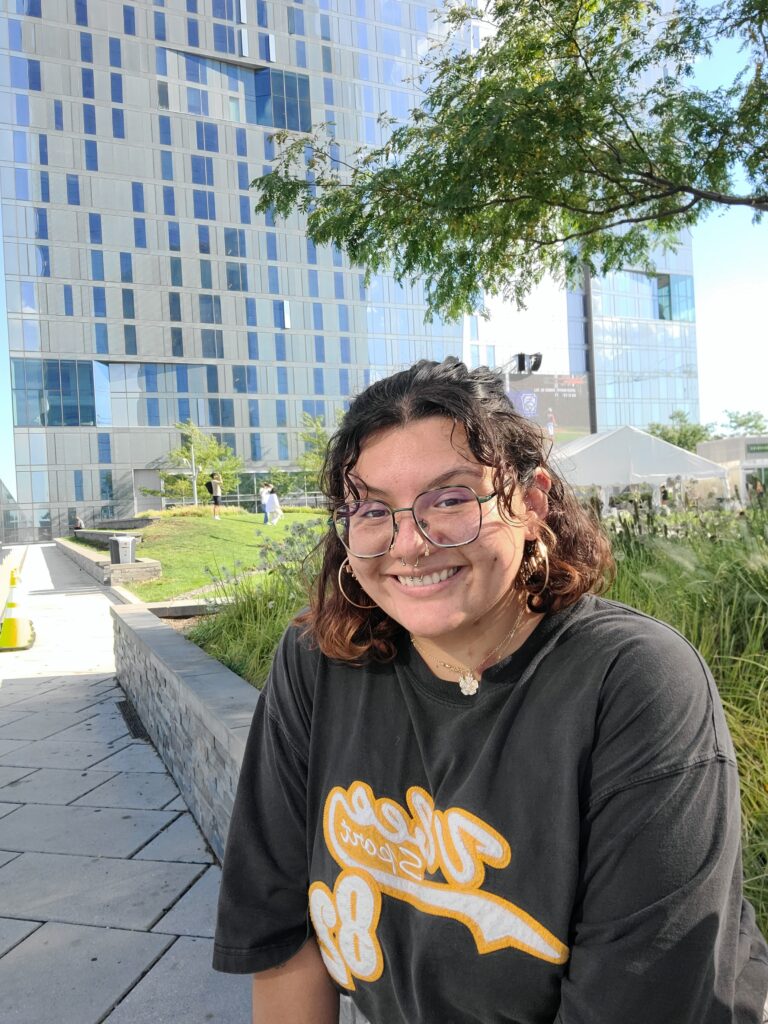
This is Lucia’s story.
